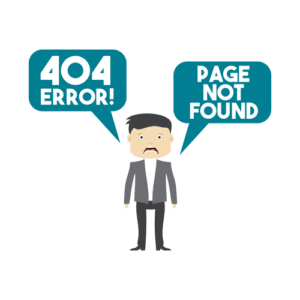
As states and localities continue to legalize cannabis use and businesses, federal law appears increasingly discordant, raising a number of practical challenges for federal and subnational policymakers. While there has been increasing attention and interest in this issue on Capitol Hill, in the near term the federal tax treatment of cannabis-related business remains fraught with risks. https://www.bookstime.com/articles/truckers-bookkeeping-services All but one of them — Virginia — have also legalized, regulated, and taxed cannabis sales. Specific ad quantum taxes can be simpler than ad valorem taxes because the tax can be calculated based on weight, volume, or quantity instead of requiring an estimated value of the product. Cigarette excise taxes are applied per pack and gasoline excise taxes are applied per gallon, for example.
Marijuana tax rates in New York

The numbers are intended to illustrate trends in revenue collections and rough estimates of potential revenues for states that currently do not allow marijuana sales. In states that do collect, differences between the estimated potential revenue and actual collections are related to variations in regulatory and tax policy structures as well as market maturity. (FY 2019 was Colorado’s fifth full fiscal year of marijuana sales.) See Appendix B for estimation of first-year-collections. For both a weight and a potency-based tax, it will be necessary to develop and define tax categories to ensure equitability. The tax should be levied early in the value chain similar to alcohol, gas, and tobacco taxes to limit the number of taxpayers.[105] Limiting the number of taxpayers is important because fewer taxpayers make less work for both government and industry. To best tax marijuana products equitably and stably, policymakers should stay away from ad valorem taxes despite their simplicity.
Marijuana tax rates in Massachusetts
The lower risk should increase the entrance of new entrepreneurs into the market, which increases supply and forces down prices. Taxing marijuana is complex, in part because an array of marijuana consumption products exists. Marijuana can be smoked, with different strands having different potency levels of THC, or liquid cannabis extracts and concentrates can be used in the creation of edible or drinkable products, with varying levels of THC. Perhaps the closest markets from which to mirror public policy for cannabis are the well-established taxes on alcohol and tobacco. However, cannabis markets have not evolved a standardized product like tobacco, where taxes can be levied by stick (cigarette) or pack, nor is the intoxicating ingredient (THC) as easily measured as alcohol content for an appropriately targeted tax.
The Tax Policy Center’s
- The second section discusses tax design options for states and the federal government as well as some of the factors impacting tax policy design in the marijuana space.
- However, like other excise taxes, a cannabis tax rate is typically higher than the government’s general sales tax rate.
- At last count, 36 states plus the District of Columbia have legalized marijuana for recreational or medicinal use, or both.
- States are listed in chronological order, based on when state-legal cannabis sales began, with the most mature markets first.
- Enter the taxable sales of adult-use cannabis products on the jurisdiction line for the county where your registered retail dispensary is located.
As the understanding of central issues develops, tax policy and regulatory policy should develop as well. The calculations below are based on the current system in Colorado, which uses price-based and weight-based elements. However, similar level collections should be possible with a potency- and a weight-based system. Were Colorado to move to such a system, based on demand and consumption data in Colorado, the average rate would be around $35 per ounce. That is not to say that smoking marijuana is necessarily less harmful as smoking marijuana creates additional externalities like carcinogens from combustion.

People 12+ who used illicit drugs in their lifetime
Alaska, Colorado, Maine, Nevada, and New Jersey use a weight-based cannabis tax. Adult-use cannabis products are exempt from sales tax but are subject to the adult-use cannabis products tax imposed on a distributor or retail seller who sells adult-use cannabis. If you are a registered organization or microbusiness and sell adult-use cannabis products directly to a retail customer, the 9% tax rate is imposed on 75% of the amount charged for the sale or transfer of those products. Please see the Retailers section for additional information regarding the application of the cannabis excise tax and the requirements for cannabis retailers. This data is collected from different state agencies that compile and maintain records related to the taxation of cannabis, which includes data on tax revenues, types of taxation, and how these revenues are allocated and distributed at the state and local levels. In 2021, these five states collectively generated a record-breaking $2.78 billion in revenue from taxes on cannabis sales, marking the highest income level since tax collection began in 2014.
The California Department of Tax and Fee Administration (CDTFA) administers California’s sales and use, fuel, tobacco, alcohol, cannabis taxes, and other taxes and fees that fund specific state programs. Below are estimated tax rates and final retail costs, assuming a wholesale flower cost of $8.05/gm, which comprises the average wholesale prices in Massachusetts and Illinois (as of 2020), and a 100% percent retail mark up. The vaporizer cartridge wholesale price and gummy wholesale price are taken from averages from California, Colorado, Illinois, Massachusetts, Nevada, Oregon, and Washington.
- Nonetheless, these factors suggest a need for different rates for different delivery methods, a system already used in Canada.[103] Such a system similarly already exists for nicotine products, where cigarettes are the most harmful and are generally taxed at a higher rate.
- While prices for these products vary considerably, for comparison, based on estimated average prices, effective tax rates can be derived for comparison.
- A federal excise taxAn excise tax is a tax imposed on a specific good or activity.
- For example, if one of these silent investors gives initial money, say $5,000 or $10,000, and it grows to where they can then claim ownership, these businesses can become complicit in laundering money for drug traffickers.
- While the recommendations presented in this paper are relevant for all states, some will find changing current marijuana tax policy very difficult.
- In some markets, like California, Oregon, and Washington, an established and culturally accepted, yet unlicensed, marijuana industry has been operating relatively openly.
- (Marijuana has known negative effects and documented benefits.) However, unlike a cigarette tax, a cannabis tax is not typically meant to discourage broad consumption.
As mentioned above, one resource the IRS issued in conjunction with their new webpage is a Marijuana Industry FAQ. On a broad scale, the FAQ addresses federal tax filing and information reporting requirements specific to taxpayers involved with the production, processing, sale or distribution of marijuana products. If you plan to sell taxable tangible personal property or provide taxable services, you must apply for your sales tax Certificate of Authority at least 20 days before beginning business.
These 23 States, DC Collected $2.9 Billion in Cannabis Excise Tax Revenue in 2023 – Cannabis Business Times
These 23 States, DC Collected $2.9 Billion in Cannabis Excise Tax Revenue in 2023.
Posted: Thu, 04 Apr 2024 07:00:00 GMT [source]
Legacy markets are crucial to understand for lawmakers developing regulatory and tax frameworks for legalization. Often, ad valorem taxes also result in tax pyramiding, which is when a state levies an excise medical marijuana accounting tax at the wholesale level and a retail tax based on retail selling price. The wholesale tax is built into the retail selling price on which the retail tax is based, resulting in a tax on a tax.
Marijuana tax rates in Colorado
From the standpoint of federal law, however, the manufacture, distribution, and possession of cannabis remains a federal crime under the Controlled Substances Act (CSA). Under federal law, cannabis is a Schedule 1 controlled substance, and anyone involved in its distribution is, all else equal, a drug dealer subject to severe criminal penalties. Curiously, federal law also requires these cannabis businesses to pay federal taxes on their income even though that income is illicit money as far as federal law is concerned. While marijuana tax collections have been performing well, it is important that states exercise caution when budgeting for anticipated revenues. The Pew Charitable Trusts has pointed out that it can be a difficult to accurately forecast marijuana tax revenues; Nevada exceeded initial estimates by 45% in the first six months of collecting marijuana taxes, while California was below projections by 45% in the first six months. Colorado estimated that it would bring in $67 million in the first full fiscal year of legal cannabis sales, and it collected $66.1 million.